We may receive a commission when you use our affiliate links. However, this does not impact our recommendations.
All stock jointer fences stink. No matter how tightly you crank them down or how gingerly you treat them, they won’t remain square to the tables. Why? Because they can be adjusted off 90°. Anything that can be adjusted will eventually go out of adjustment.
So today at the French Oak Roubo Project, we had to glue up 14 benchtops by the end of the day to make sure the glue could cure overnight.
First problem: the jointer’s beds weren’t in the same plane. Solution: Shims. Second problem: The jointer’s fence was missing some jamb nuts. So the fence would go out of square after every pass.
Solution: Jameel Abraham of Benchcrafted grabbed a big stick of French oak and made a new fence. He carefully jointed it on another machine and then we push the massive 6”-thick stick into the jointer’s cutterhead, stopping it about halfway through the pass and turning off the jointer.
Then we clamped the fence to the infeed and outfeed tables and went to town. With the metal fence it took us three hours to complete two tops. With the wooden fence we did 12 tops in 3-1/2 hours. Score.
A wooden fence has its limitations. The wood will change shape with the seasons and isn’t mechanically connected to the machine’s outfeed table – so making changes in the tables will require that you unclamp the fence from the infeed table.
But dang. It made life so much easier today. By the end of the day the entire fence was burnished through heavy use (and Teflon spray). So the work got easier and easier with each top.
I’m not making a call for wooden jointer fences. What I would pay money for is a 90° cast-iron fence that is dead-nuts perfect and non-adjustable. That would take care of about 99 percent of my jointer needs.
Thanks to the new fence, we got all the tops in clamps, most of the legs milled and were ready to soak our feet.
That’s a good day.
— Christopher Schwarz
Here are some supplies and tools we find essential in our everyday work around the shop. We may receive a commission from sales referred by our links; however, we have carefully selected these products for their usefulness and quality.



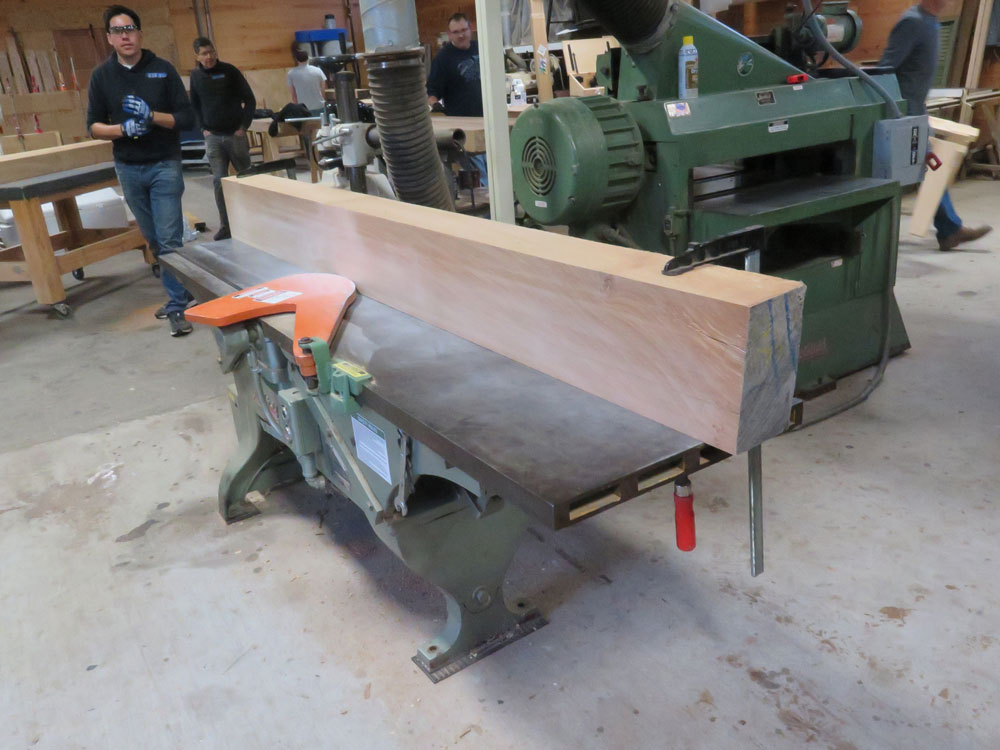
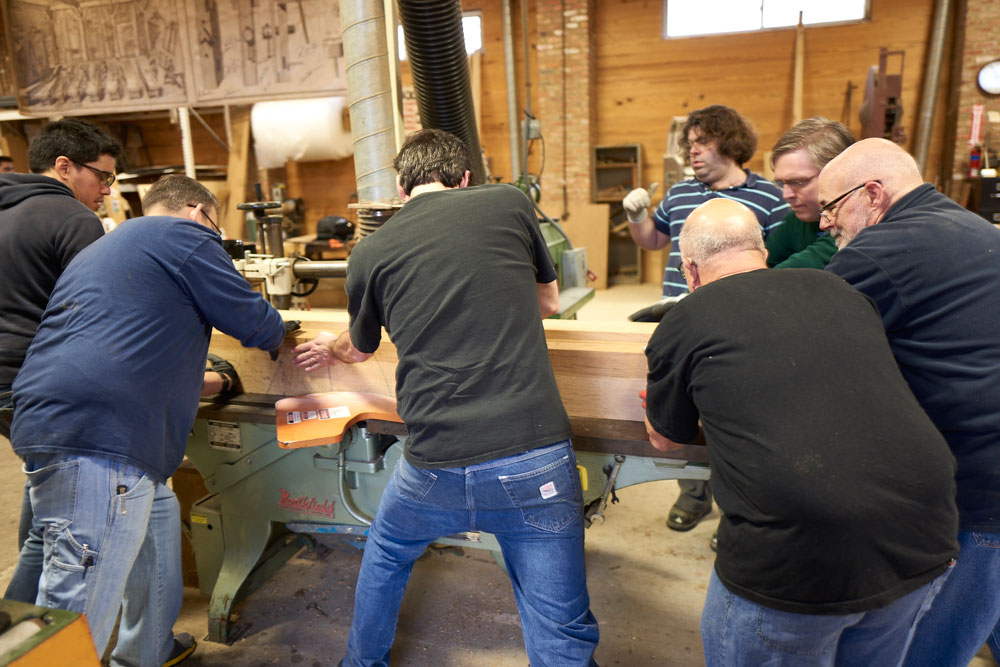
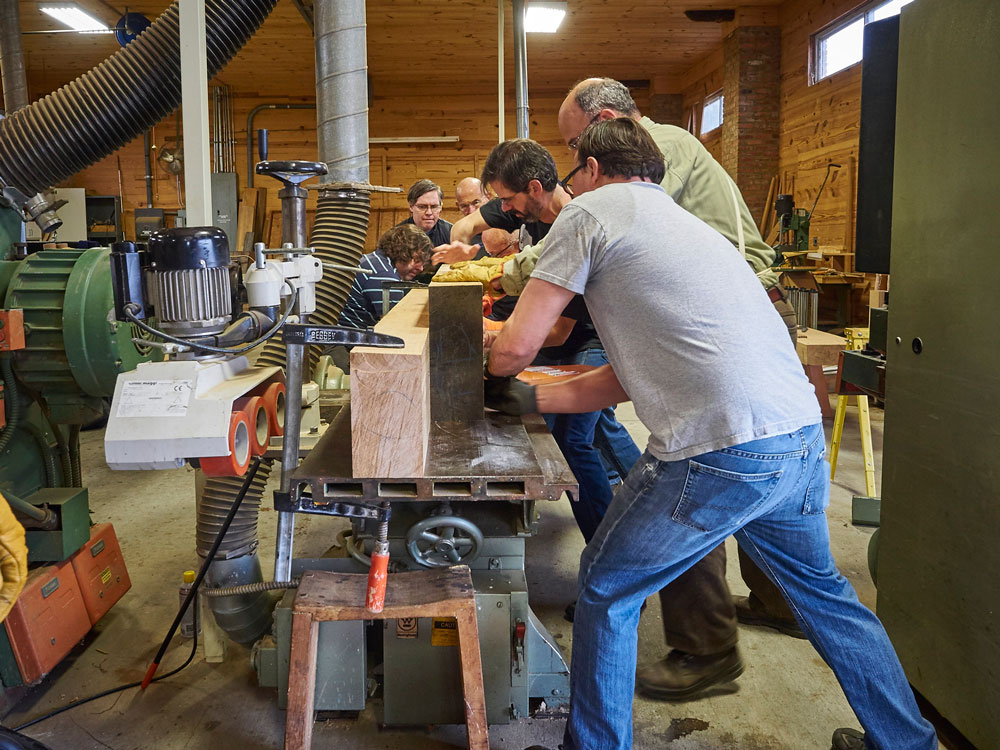
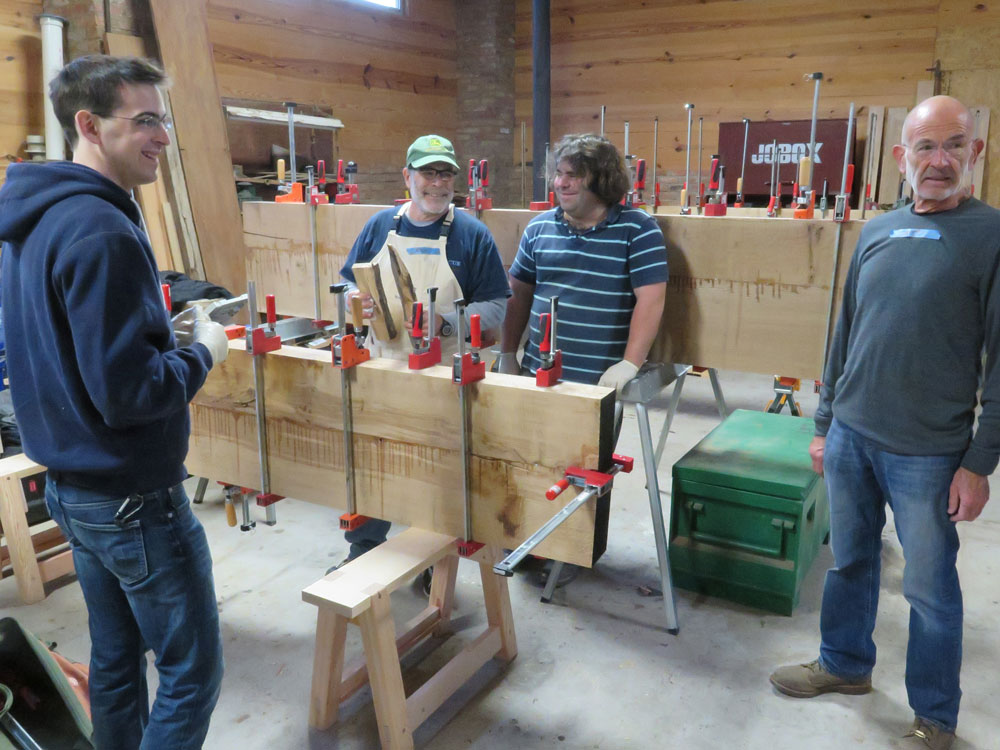




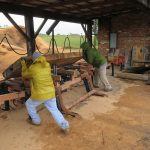
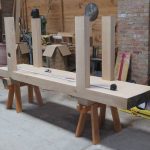
I picked up a 1 1/4″ (?) X 36″ flat, pretty hefty piece of polished black granite counter top. I never got around to making the necessary mount for it, but thought it would make a great jointer fence.
I’m late reading through my e-mail, so you may not see this Chris. If a square 90* fence is what you want for your jointer at home it would be a 2 to 3 hour project for a tool shop with welding capabilities. Ribs to support the back side would make it stay put, and using 3/8″ mild steel would be plenty sufficient for strength. Parts don’t need to be cast, that is where those fences get all crazy on you anyhow. Dayton has more small shops than you can shake a stick at, some of them are hungry for work too.
The original fence sounds dreadful. Having cut my woodworking teeth in co-op shops, I’m well served by the defensive habit of having Mr. Starrett check the jointer fence every-single-time I setup. But I’ve never had the “joy” of a fence that goes out of true on every pass. Mad-making!
Great looking new CS saw benchs too. You boys are having a blast, I envy your opportunity to handle ancient hardwood from France.
Is all this precision really needed on a work bench; it is wood you are working with?
In woodworking, as in life, applying Occam’s Razor can always lead to the best method of work. Bravo!
Couldn’t you just alternate which face was against the fence which would yield a matching complimentary angle? So on one board the angle is maybe 90.5 and on the other the angle is 89.5, which gives you a flat 180 degree joint. Tage Frid talks about doing this in one of his books.
One day, in the very distant future, there is a tiny chance that there will be a problem that Jameel cannot solve!
A northfield’s beds where out of plane? Shims?! Sacrilege!
Did you all glue them together with epoxy? PVA? animal goo?